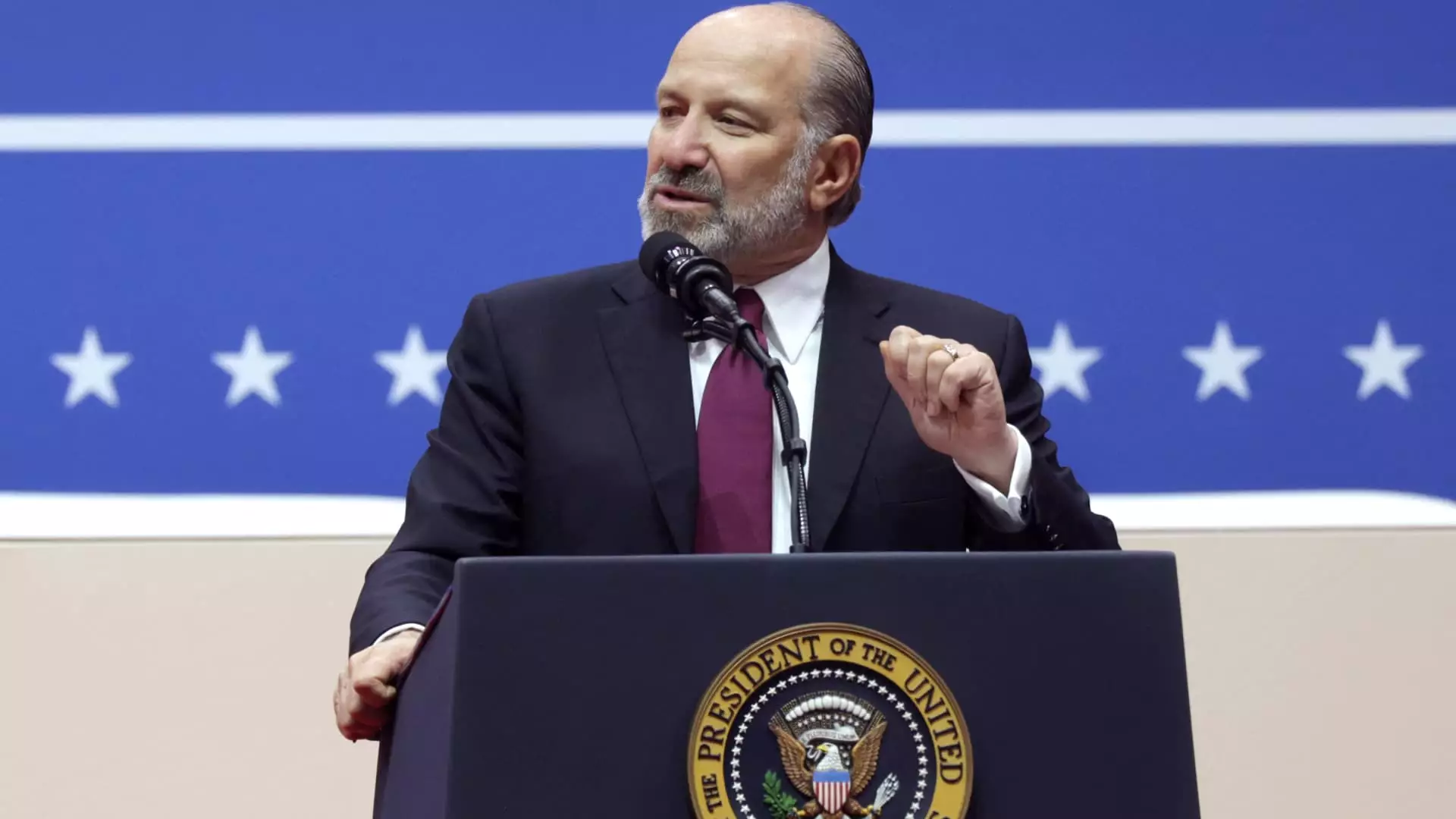In a move that could unleash chaos for consumers and tech companies alike, Howard Lutnick, the Commerce Secretary under President Trump, hinted at the fragility of recent tariff exemptions for electronics. Speaking on ABC News, he made it abundantly clear that the reprieve from reciprocal tariffs on key tech items is anything but secure. The shadow of new semiconductor tariffs looms large, potentially inflating prices for smartphones, laptops, and other essential electronics in a matter of weeks. Such a scenario raises alarm bells—not just for industry insiders but for everyday American consumers who are already grappling with rising costs.
The Economic Implications of Tariff Wars
Lutnick’s comments starkly reveal a troublesome pattern in the Trump administration’s economic strategy: the intertwining of national security rhetoric with aggressive trade policy. While it is crucial for a country to ensure its security, the notion that electronics manufacturers must be entirely domestic overlooks the complexities of global supply chains. Tariffs on imported electronics will not only raise prices but could also disrupt the market, making essential gadgets less accessible for millions. This convoluted approach to trade shows a lack of foresight, putting American consumers in a precarious position while simultaneously enriching domestic manufacturers. The idea that “these are things that are national security” may sound patriotic, yet the reality is that excessive tariffs only serve to burden the average consumer.
The Confusion Factor
This kind of uncertainty is a breeding ground for frustration among foreign and domestic businesses alike. Democratic Sen. Cory Booker nailed it when he criticized the Trump administration for creating a “crisis in credibility.” Mixed messages on tariffs—first granting exemptions, followed by a possible reversal—only exacerbate confusion in an already volatile market. The tech industry, which thrives on predictability for planning and investments, finds itself in a minefield of erratic policy changes. If America is to maintain its competitive edge in tech, policymakers must avoid this haphazard approach that sacrifices consistency for short-term political gain.
Protectionism vs. Innovation
Critically, the administration’s protectionist stance could hinder innovation in the tech sector. By imposing tariffs on critical components, the government risks stifling the very creativity and ingenuity that drives technological advancements. Reverting to outdated ideas of self-sufficiency ignores the fact that collaboration across borders has been a cornerstone of technological progress in the 21st century. American tech giants like Apple thrive on global supply chains that allow them to deliver high-quality products at competitive prices. Disrupting these chains could undermine not just the companies but also the millions of jobs they generate.
In a time when American consumers deserve stability and predictability, the administration’s stance complicates an already challenging landscape. As tariffs potentially inflate prices and disrupt product availability, private citizens could bear the brunt of these economic policies. Instead of empowering American workers through protective tariffs, the time has come for a renewed focus on collaboration and innovation—critical aspects that underpin a robust and resilient economy.

